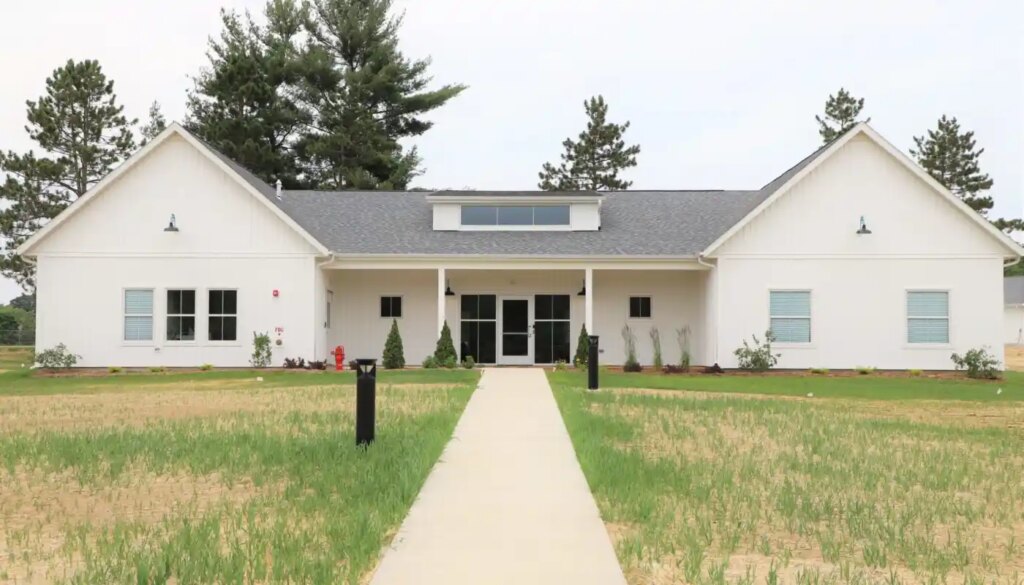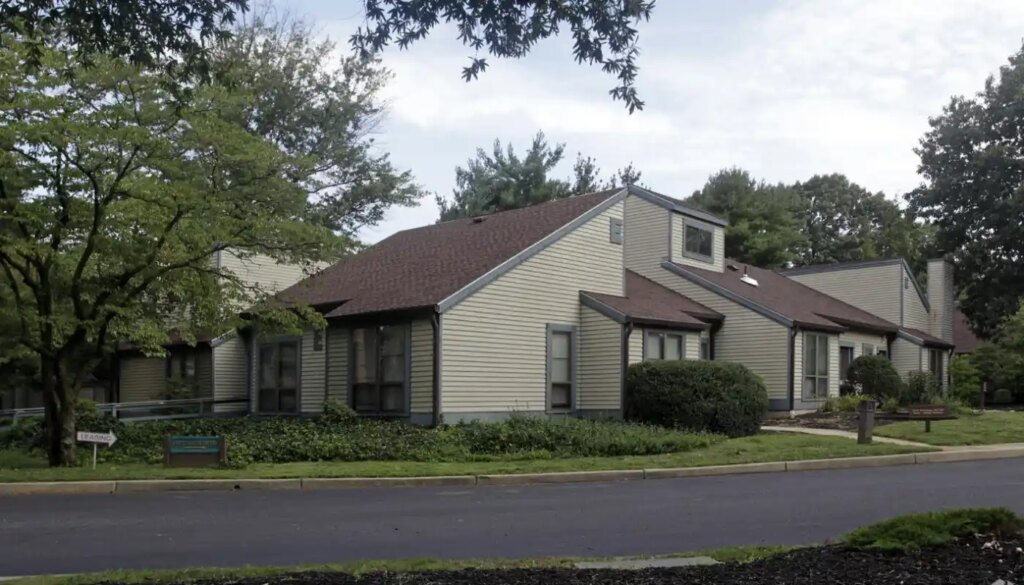




Searching for a way to cope with addiction can be overwhelming, but what if your faith could support your journey to recovery? Faith-based rehab centers offer a unique blend of spiritual guidance and clinical care, providing a comprehensive approach to tackling addiction. Discover the impact of faith in healing and how it lays the foundation for a stable, sober life in the insightful revelations that follow.
 Embracing Healing Through Faith-Based Rehabilitation
Embracing Healing Through Faith-Based RehabilitationRecovery programs based on faith present a potent and all-encompassing strategy for treating addiction by weaving spiritual beliefs with conventional recovery methods. These initiatives attend to the physical, emotional, and spirit components of an individual’s well-being, thus extending the scope of their healing beyond mere abstinence.
Not only do faith-based rehabilitation programs assist individuals in conquering addictions to substances like drugs and alcohol, but they also lay down a spiritual groundwork which can serve as motivation for enduring throughout their journey toward recovery—a journey often riddled with numerous hurdles.
In the treatment of addiction, spirituality emerges as a fundamental element rather than merely an adjunct. It provides individuals with hope, meaning, and motivation during their most challenging times throughout substance recovery. Integrating spiritual practices such as meditation and prayer into therapeutic approaches can strengthen spiritual bonds while simultaneously reducing stress levels. Taking a deep dive into spiritual reflection also enhances one’s comprehension of their personal path toward healing.
Therapies rooted in faith facilitate forgiveness and acceptance, which are crucial for letting go of feelings like guilt and resentment that often hinder recovery progress. Experiences of spiritual awakening within the context of rehab for substance abuse correlate with improved rates of abstention from substances and bolstered prospects for sustained recovery success. Therefore, incorporating elements of spirituality within faith-based rehabilitation programs plays an instrumental role in assisting individuals to overcome the trials posed by addiction.
 A Synergy of Faith and Clinical Practice
A Synergy of Faith and Clinical PracticeRecovery programs based on faith integrate not just spiritual restoration but also leverage scientifically-supported treatment methods. These initiatives combine time-honored religious traditions with modern clinical strategies, including behavioral therapy techniques such as cognitive behavioral therapy, to offer a robust approach to treating addiction.
Within these faith-based recovery efforts are support groups that furnish a sense of community for those undergoing recovery. In this setting, individuals share experiences and gain encouragement through principles rooted deeply in spirituality.
Sobriety is an ongoing process extending beyond the confines of rehab facilities. Sustaining it requires continued engagement with spiritual practices such as prayer and worship after rehabilitation ends. Such activities foster continual spiritual development and help maintain accountability post-rehabilitation.
Recovery centers rooted in faith provide a variety of treatment modalities which include:
Faith-based initiatives’ versatility is evidenced by their provision for varying levels of care, which can range from partial hospitalization services to intensive outpatient support structures. By fusing religious instruction with traditional methods used in treating substance abuse, rehabs based on principles of faith deliver a full spectrum of supportive measures for those navigating through their recuperation process.
Spiritual practices such as prayer, meditation, and scripture study enrich individual counseling sessions within faith-based recovery programs. By harmonizing with an individual’s religious convictions, these elements can heighten the impact of therapy. In Christian drug rehabilitation settings specifically, there is a strong focus on deepening one’s relationship with God alongside receiving essential treatment for substance abuse.
Faith-based support programs offer distinctive group therapy sessions by fostering connections among participants while addressing the sense of spiritual void that may accompany substance use. Integral to faith-based rehab facilities is often the adoption of 12-step recovery assistance programs that amalgamate spiritual development and community backing into their approach to group therapy encounters.
 The Supportive Community of Faith-Based Recovery
The Supportive Community of Faith-Based RecoveryFaith-based recovery programs are characterized by their nurturing community atmosphere. This environment aids recovering addicts in overcoming feelings of guilt and shame and promotes inclusiveness, which is especially beneficial for those who feel alienated as a consequence of addiction.
The reinforcement provided by the supportive atmosphere is integral to bolstering personalized treatment regimens. Initiatives that form part of this support network can be found both within the confines of the rehab facility and beyond its walls, encompassing:
These individuals collaborate to offer well-rounded assistance that enhances the overall experience during the journey towards recovery.
Involvement of family members plays a crucial role in faith-based recovery programs. These programs not only deliver education and therapy sessions to improve insight and offer vital support for the individual’s journey towards recovery, but they also equip family members with an increased comprehension of addiction and its recuperative stages.
Faith-based recovery initiatives frequently incorporate gatherings that are open for attendance by family members, beyond providing support groups tailored for individuals. This collective method encourages understanding, empathy, and solidarity within the familial network, thereby cultivating a nurturing backdrop conducive to the individual’s path to recovery.
Choosing faith-based rehab for drug and alcohol abuse offers several benefits. These programs enable individuals to continue to grow in their religious beliefs during the recovery process, providing a sense of familiarity and comfort. Moreover, faith-based rehab programs provide a community of peers who share a faith, seeking strength in sobriety through a higher power.
These programs are not just beneficial for individuals, but also for society at large. By helping individuals overcome drug addiction, they contribute to reducing the social and economic burden of substance abuse and drug abuse.
Addiction treatment programs grounded in faith, including those offered by Christian rehab facilities, prioritize adaptability to meet the distinct spiritual and religious requirements of each individual. Such programs often integrate elements like Bible study and promote recognizing God’s role in the healing journey. They strive to deliver not only clinical support but also spiritual guidance for those on the path to recovery. In a similar vein, Jewish rehab centers might weave Torah teachings into their sessions as they emphasize the significance of maintaining sobriety.
The integration of an individual’s faith with their addiction recovery process affords a more personalized approach that aligns with their beliefs. This tailored care enhances both meaning and efficacy throughout one’s pursuit of sober living and rehabilitation—rendering it resonant on a deeper spiritual level.
 Navigating the Path to a Faith-Based Recovery Program
Navigating the Path to a Faith-Based Recovery ProgramEmbarking on the journey toward a faith-based recovery can seem overwhelming, yet there is an abundance of support ready to guide you.
Comprehending the various levels of care in faith-based rehab programs is essential for individuals to select the treatment option that aligns with their recovery needs. Partial hospitalization, which represents a highly concentrated form of outpatient care, mandates several hours of attendance daily across five to seven days each week.
In contrast, intensive outpatient programs demand a lower time commitment compared to partial hospitalization and typically involve attending sessions a few times weekly. Meanwhile, standard outpatient services offer the least regimented approach — often encompassing weekly therapy meetings — making them ideal for those dealing with less severe addiction problems.
Such an array of choices guarantees that individuals seeking recovery can pinpoint a level of care consistent with both their personal situations and aspirations toward healing from addiction.
Believing in your own capabilities and the process of recovery is essential for fostering self-forgiveness, boosting confidence, and securing support as you navigate the path to recovery. This belief can profoundly influence your advancement and perspective throughout this journey.
A recovery program rooted in faith incorporates spiritual tenets with conventional approaches to cater to the physical, emotional, and spiritual aspects of individuals undergoing rehabilitation from addiction.
In faith-based recovery programs, the involvement of family members is essential. It provides critical support for the individual’s journey to recovery, while also delivering educational resources and therapeutic interventions that bolster comprehension among family relations. This participation is a cornerstone in reinforcing both the effectiveness of faith-based healing efforts and supporting personal restoration within these programs.